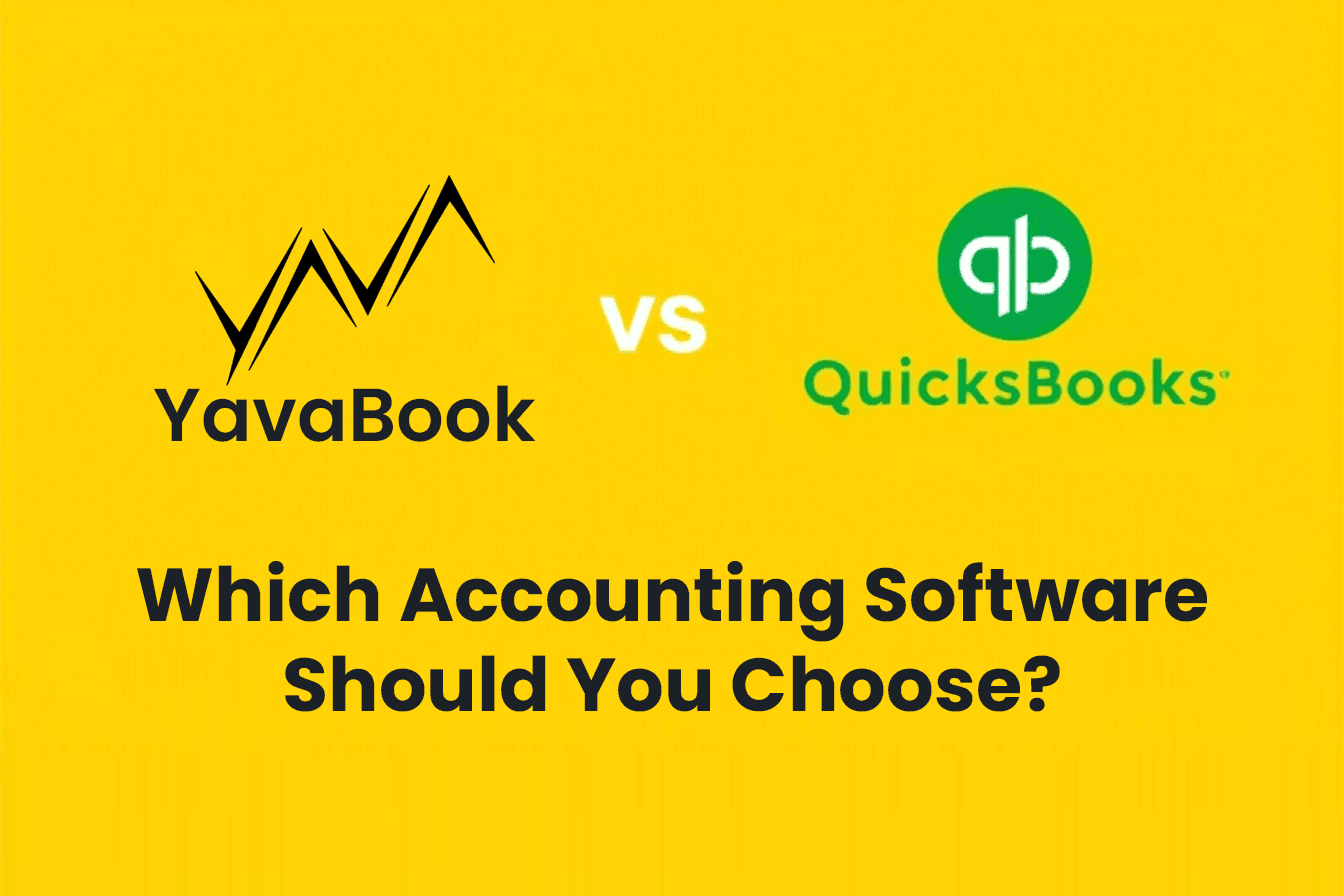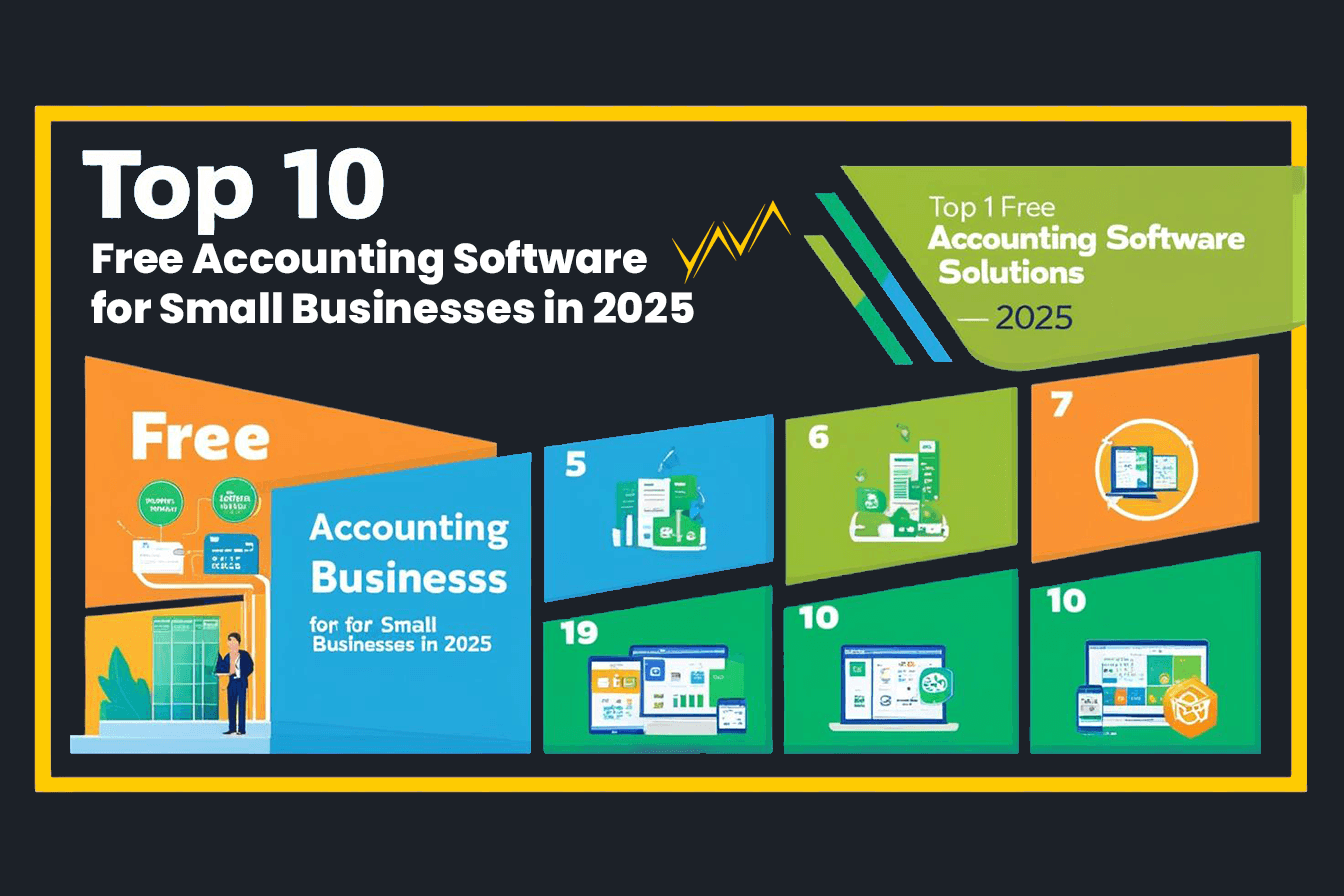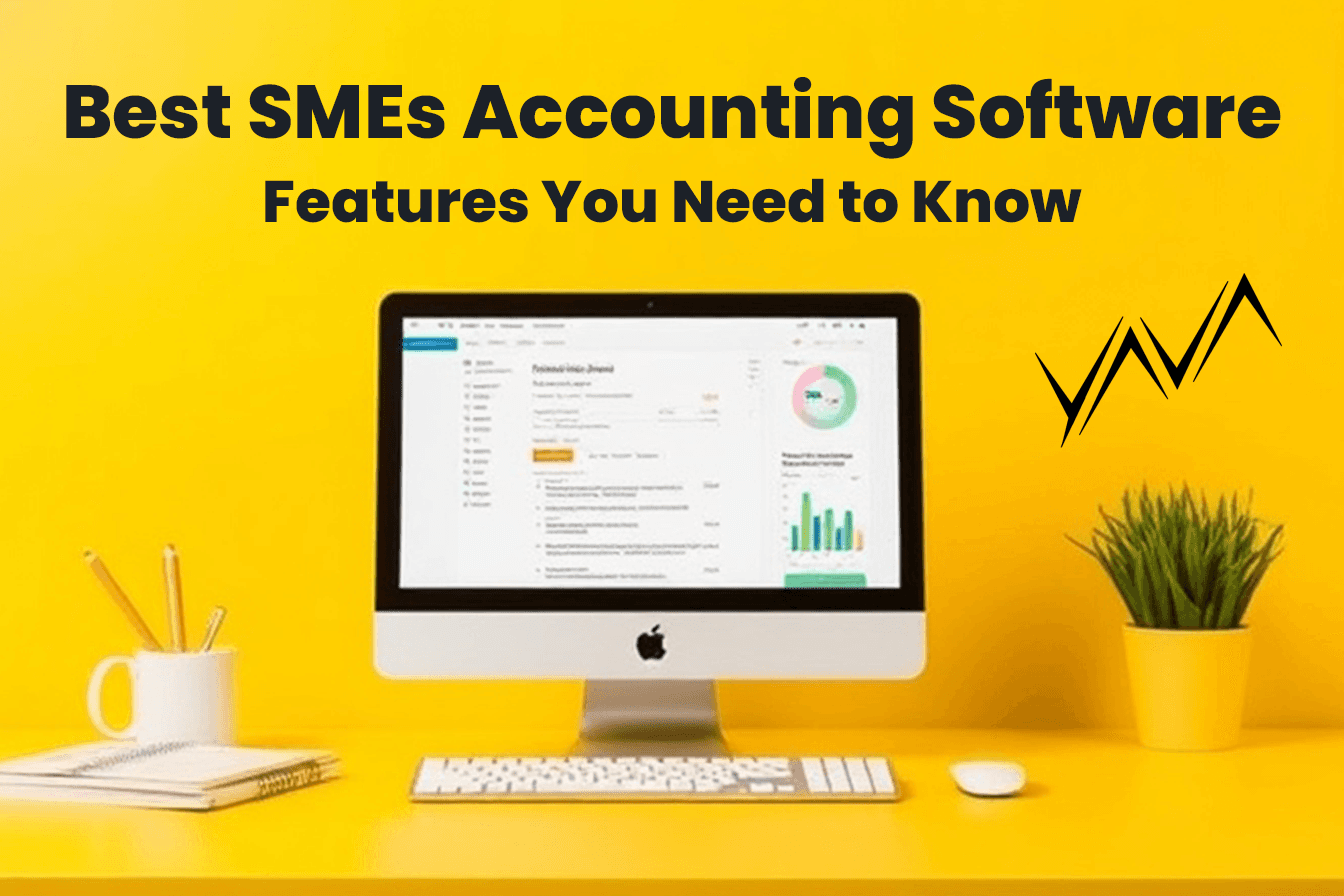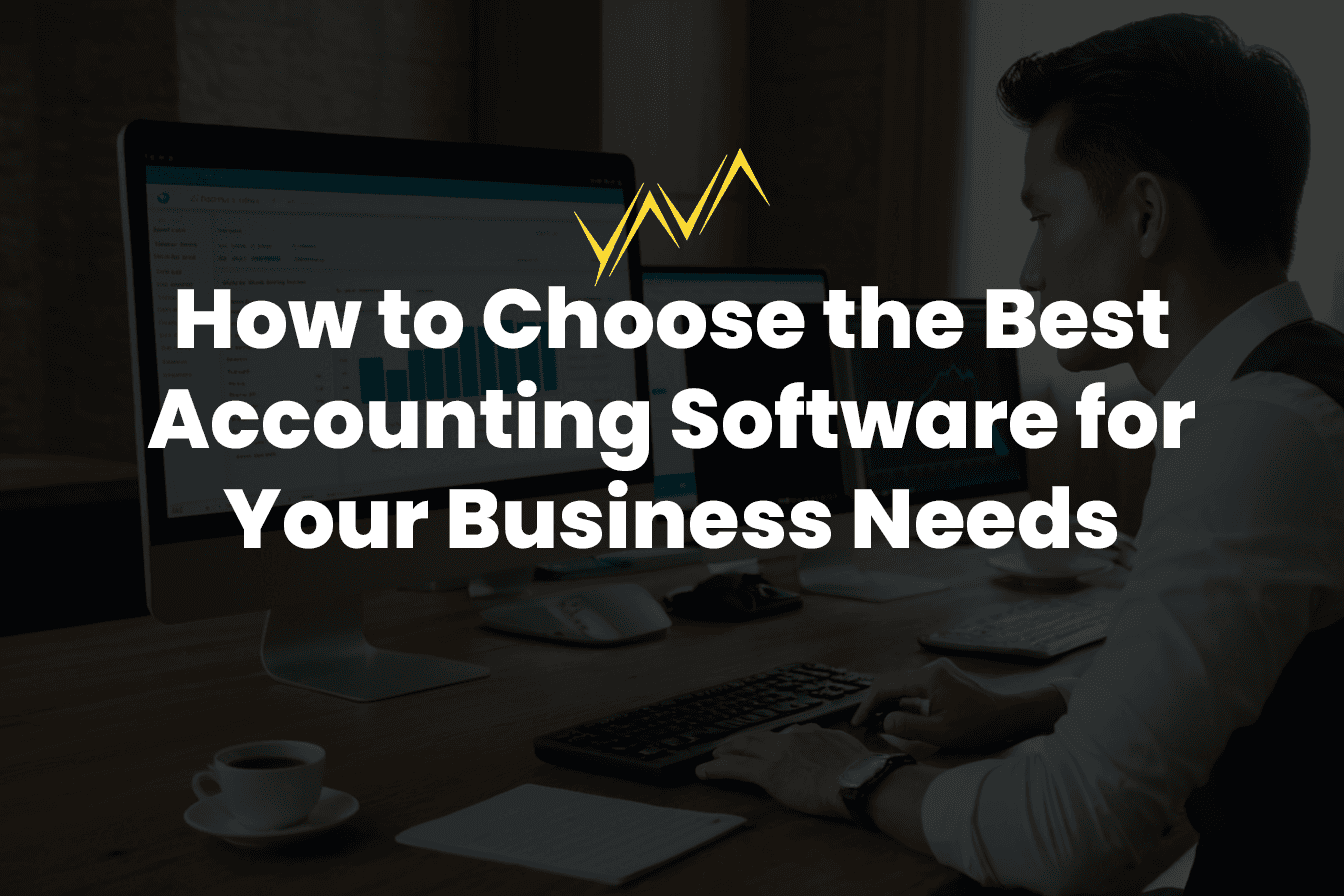Introduction:
QuickBooks is a powerful tool, but its cost can be a barrier for small businesses. YavaBook provides a free alternative with essential features like invoicing, expense tracking, and financial reporting. If affordability and simplicity are priorities, YavaBook is the perfect choice for startups and SMEs.
Overview of QuickBooks
QuickBooks is a powerful accounting tool designed for businesses of all sizes. It offers both cloud-based and desktop versions, with a wide range of features to streamline financial management.
Key Features
Expense Management
Automatically categorize expenses and track spending trends.Invoicing Tools
Create professional invoices and send automated payment reminders.Financial Reporting
Generate detailed reports, including profit and loss statements and cash flow summaries.Pricing
Plans start at $20/month, with higher-tier options for advanced features like inventory tracking and multi-currency support.
For more on QuickBooks, see QuickBooks Online vs QuickBooks Desktop: Which Is Best for Your Business?.
Overview of YavaBook
YavaBook is a free accounting software solution tailored for startups and small businesses. It simplifies bookkeeping and provides essential tools to manage finances effectively without any subscription costs.
Key Features
Expense Tracking
Categorize expenses automatically for better financial oversight.GST-Ready Invoicing
Create invoices compliant with Singapore’s GST requirements and automate reminders for overdue payments.Real-Time Financial Insights
Monitor cash flow, track profits, and generate detailed reports.Pricing
Free forever, with no hidden fees or premium tiers.
Learn more about its benefits in Why YavaBook Is the Best Free Accounting Software for Singaporean SMEs.
Head-to-Head Comparison: QuickBooks vs YavaBook
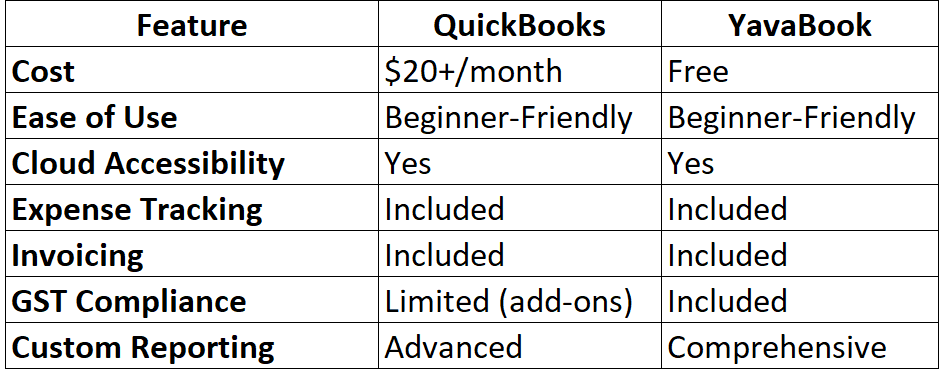
For a detailed analysis of free options, read Top 10 Free Accounting Software Solutions for Small Businesses in 2025.
Strengths and Weaknesses
QuickBooks
Strengths:
Advanced reporting tools for data-driven decision-making.
Scalable features suitable for medium-sized businesses.
Weaknesses:
Monthly subscription costs add up, especially for small businesses.
Many features require add-ons, increasing overall expenses.
YavaBook
Strengths:
Completely free, making it ideal for budget-conscious businesses.
User-friendly interface designed for non-accountants.
GST-compliant invoicing tailored to Singaporean businesses.
Weaknesses:
Limited third-party integrations compared to QuickBooks.
Designed primarily for small businesses and startups.
Use Cases: Which One Should You Choose?
For Startups and SMEs
YavaBook is perfect for businesses looking to manage their finances effectively without the burden of subscription costs. It offers all the essential features required by small teams, including expense tracking, invoicing, and real-time reporting.For Growing Businesses
QuickBooks might be a better option for medium-sized businesses with complex needs, such as inventory management or multi-currency support.For Compliance-Driven Businesses
Singaporean businesses requiring GST compliance will find YavaBook’s built-in tools a seamless solution. For other regions, QuickBooks may require additional integrations or add-ons.
For more on compliance, explore Free Accounting Software in Singapore: A Guide to Making the Right Choice.
Real-Life Example: A Cost-Driven Decision
A small design agency in Singapore needed accounting software to manage its finances but was wary of subscription costs. Here’s their experience:
QuickBooks: They found its features comprehensive but unnecessary for their size, with costs exceeding $300/year.
YavaBook: It met all their needs, including GST-ready invoicing and expense tracking, at no cost.
By switching to YavaBook, the agency saved hundreds annually while maintaining full financial oversight.
Tips for Choosing the Right Software
Assess Your Budget
If affordability is a priority, YavaBook’s free model is unmatched.Evaluate Features
Determine which features are essential for your business. If you need advanced tools like inventory tracking, QuickBooks may be a better fit.Start with Free Options
Test YavaBook to see if it meets your needs before committing to a paid subscription.
For more decision-making tips, see How to Choose the Best Accounting Software for Your Business Needs.
Conclusion
Both QuickBooks and YavaBook are excellent accounting tools, but their suitability depends on your business’s size, needs, and budget. QuickBooks offers advanced features for larger businesses, while YavaBook provides an affordable, easy-to-use solution for startups and SMEs.
Ready to simplify your financial management? Sign up for YavaBook today and experience a cost-effective approach to bookkeeping and accounting.
Article by
Webb Poh
CEO and Founder
Published on
Jul 17, 2024
